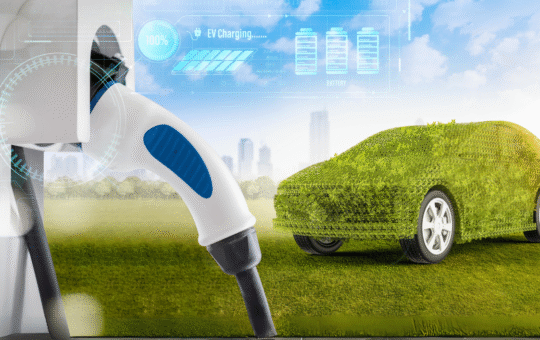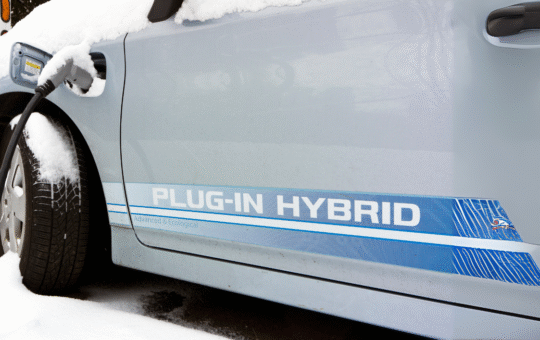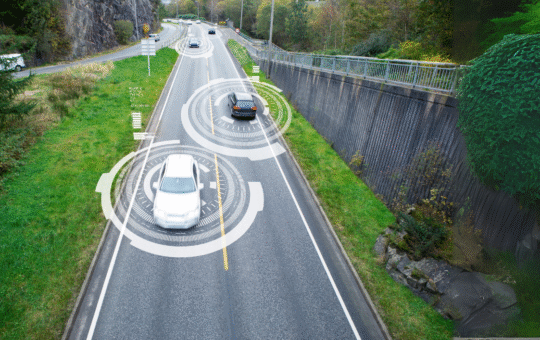
Level 5 Diploma in Advanced Powertrain and Drivetrain Systems
- Gain advanced knowledge of powertrain and drivetrain systems, essential for modern vehicle engineering.
- Learn to design, analyze, and optimize key components like engines, transmissions, and electric drive units.
- Understand the principles behind hybrid and electric vehicle powertrains, as well as traditional internal combustion engine systems.
- Open doors to career opportunities in automotive R&D, performance optimization, and vehicle manufacturing.
- Understand the fundamental principles of powertrain and drivetrain systems in both traditional and electric vehicles.
- Gain expertise in the design and optimization of internal combustion engines, transmissions, and electric powertrains.
- Learn to evaluate and enhance performance, efficiency, and emissions in powertrain systems.
- Understand hybrid and electric vehicle powertrains and their integration into modern automotive designs.
- Introduction to Automotive Powertrain and Drivetrain Systems
- Overview of vehicle powertrains: engines, transmission, drivetrain, and power distribution.
- The role of powertrains in vehicle performance, fuel efficiency, and emissions.
- Internal Combustion Engines (ICE)
- In-depth study of the operation, design, and optimization of petrol and diesel engines.
- Techniques for improving engine efficiency, performance, and reducing emissions.
- Transmission Systems and Gearboxes
- Understanding manual and automatic transmission systems.
- The design and performance of gearboxes, continuously variable transmissions (CVT), and dual-clutch systems.
- Electric and Hybrid Vehicle Powertrains
- Exploring the components and design of electric drivetrains, including electric motors, batteries, and power electronics.
- Hybrid powertrains: Combining internal combustion engines with electric motors for optimal performance and fuel efficiency.
- Performance Optimization and Efficiency
- Methods for optimizing powertrain performance, including torque, power delivery, and fuel economy.
- Reducing environmental impact through advanced powertrain technologies.
- Advanced Drivetrain Technologies
- Study of modern drivetrain systems, including all-wheel drive (AWD), front-wheel drive (FWD), and rear-wheel drive (RWD).
- The role of differential systems, torque distribution, and stability control in driving dynamics.
- Pursue advanced qualifications in automotive engineering or powertrain systems (e.g., Level 6 diploma or Master's in automotive engineering).
- Work as an automotive powertrain engineer, drivetrain system designer, or hybrid/electric vehicle specialist.
- Engage in research and development roles focused on new powertrain technologies, vehicle performance, and environmental impact reduction.
- Comprehensive Curriculum: Gain in-depth knowledge of both traditional and emerging powertrain technologies.
- Hands-On Learning: Develop practical skills in optimizing powertrain and drivetrain performance through industry-relevant coursework.
- Expert Guidance: Learn from instructors with extensive experience in automotive engineering and powertrain technologies.
- Globally Recognized Certification: Enhance your career prospects with a qualification recognized by leading automotive manufacturers and R&D institutions.
Study Units
- Introduction to Automotive Powertrain and Drivetrain Systems
- Overview of vehicle powertrains: engines, transmission, drivetrain, and power distribution.
- The role of powertrains in vehicle performance, fuel efficiency, and emissions.
- Internal Combustion Engines (ICE)
- In-depth study of the operation, design, and optimization of petrol and diesel engines.
- Techniques for improving engine efficiency, performance, and reducing emissions.
- Transmission Systems and Gearboxes
- Understanding manual and automatic transmission systems.
- The design and performance of gearboxes, continuously variable transmissions (CVT), and dual-clutch systems.
- Electric and Hybrid Vehicle Powertrains
- Exploring the components and design of electric drivetrains, including electric motors, batteries, and power electronics.
- Hybrid powertrains: Combining internal combustion engines with electric motors for optimal performance and fuel efficiency.
- Performance Optimization and Efficiency
- Methods for optimizing powertrain performance, including torque, power delivery, and fuel economy.
- Reducing environmental impact through advanced powertrain technologies.
- Advanced Drivetrain Technologies
- Study of modern drivetrain systems, including all-wheel drive (AWD), front-wheel drive (FWD), and rear-wheel drive (RWD).
- The role of differential systems, torque distribution, and stability control in driving dynamics.
Upon completing this diploma, learners will:
- Understand the fundamental principles of powertrain and drivetrain systems in both traditional and electric vehicles.
- Gain expertise in the design and optimization of internal combustion engines, transmissions, and electric powertrains.
- Learn to evaluate and enhance performance, efficiency, and emissions in powertrain systems.
- Understand hybrid and electric vehicle powertrains and their integration into modern automotive designs.
This diploma is designed for individuals seeking to specialize in advanced automotive powertrain and drivetrain systems. It is ideal for:
Automotive Powertrain Engineers
Engineers involved in the design, optimization, and testing of vehicle powertrains, including engines, transmissions, and electric drivetrains.
Drivetrain System Designers
Professionals working on vehicle drivetrain systems, including manual, automatic, and hybrid systems, looking to enhance their knowledge of advanced transmission and power distribution technologies.
Electric and Hybrid Vehicle Specialists
Those focused on the development and optimization of electric and hybrid vehicle powertrains, including electric motors, batteries, and related technologies.
Automotive R&D Engineers
Engineers engaged in automotive research and development, especially in areas of powertrain performance, fuel efficiency, and emission reduction.
Vehicle Performance Optimization Experts
Individuals working to improve vehicle performance through the optimization of powertrain efficiency, fuel economy, and driving dynamics.
Advanced Automotive Technicians and Engineers
Technicians and engineers with a background in automotive systems who wish to enhance their skills in cutting-edge powertrain technologies.
Students and Apprentices in Automotive Engineering
Aspiring professionals aiming to specialize in the powertrain and drivetrain systems of modern vehicles, both traditional and electric, with a focus on high-performance and sustainable technologies.
Our assessment process is designed to ensure every learner achieves the required level of knowledge, skills, and understanding outlined in each course unit.
Purpose of Assessment
Assessment helps measure how well a learner has met the learning outcomes. It ensures consistency, quality, and fairness across all learners.
What Learners Need to Do
Learners must provide clear evidence that shows they have met all the learning outcomes and assessment criteria for each unit. This evidence can take different forms depending on the course and type of learning.
Types of Acceptable Evidence
Assignments, reports, or projects
Worksheets or written tasks
Portfolios of practical work
Answers to oral or written questions
Test or exam papers
Understanding the Structure
Learning outcomes explain what learners should know, understand, or be able to do.
Assessment criteria set the standard learners must meet to achieve each learning outcome.
Assessment Guidelines
All assessment must be authentic, current, and relevant to the unit.
Evidence must match each assessment criterion clearly.
Plagiarism or copied work is not accepted.
All learners must complete assessments within the given timelines.
Where applicable, assessments may be reviewed or verified by internal or external quality assurers.
Full learning outcomes and assessment criteria for each qualification are available from page 8 of the course handbook.
Top Courses
No results found.
Related Courses
Let's Get in touch
Deleting Course Review
Course Access
This course is password protected. To access it please enter your password below:



